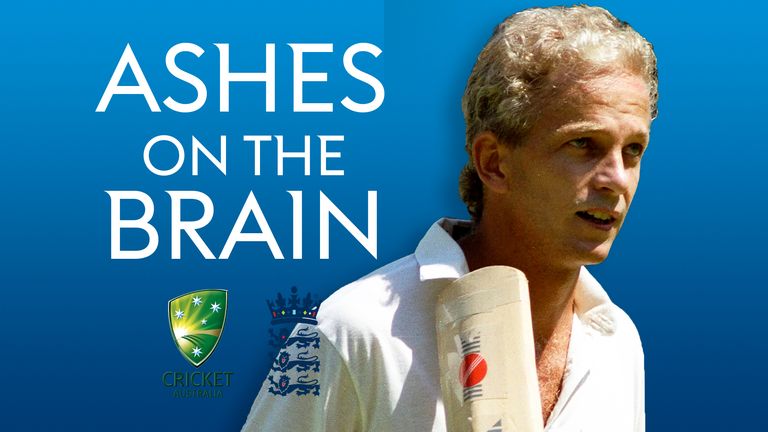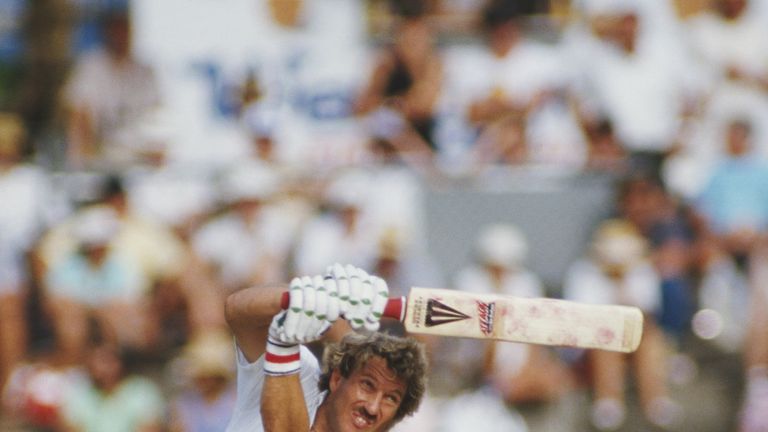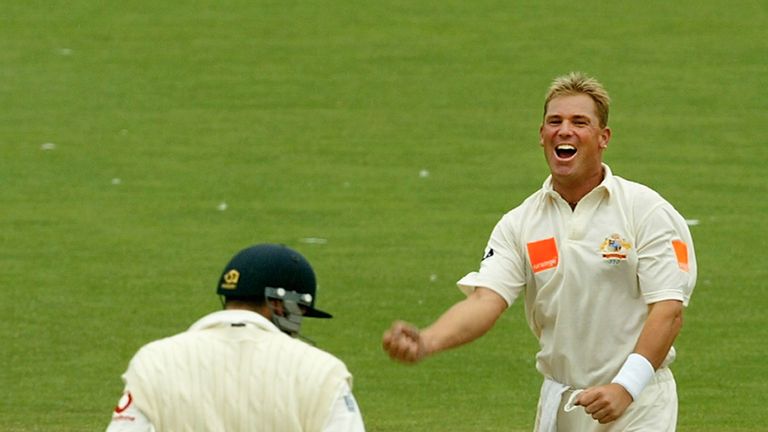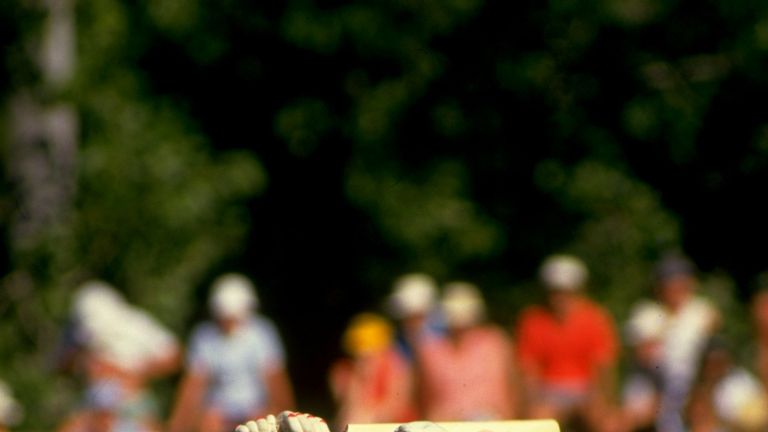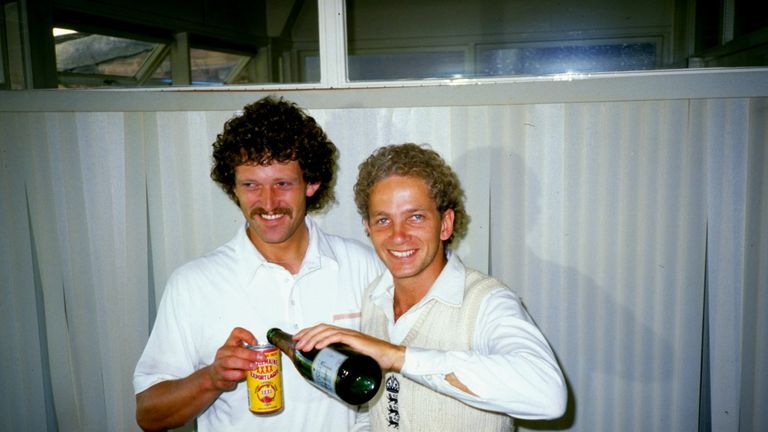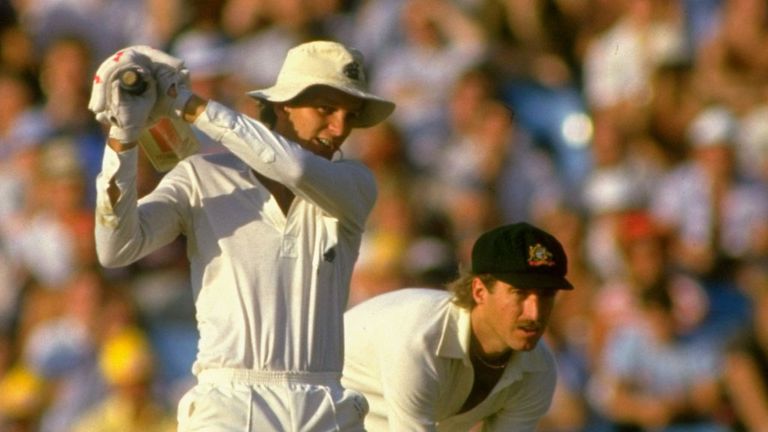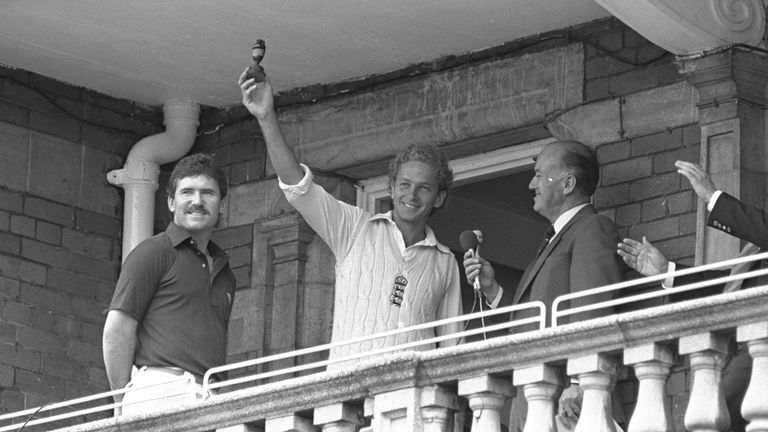David Gower on Ashes success as player and captain - and why Sir Ian Botham is 'half Australian'
In our latest Ashes on the Brain column, David Gower explains why the Ashes is 'extra special' and the buzz on the morning of the first Test...
Thursday 30 November 2017 10:26, UK
There are two levels of approaching an Ashes tour. One is the more prosaic level which is the excitement of going to Australia, the excitement of going overseas, the excitement of going on any tour.
Whether it is the Ashes or not, preparing to go away for two and a half months is just an exciting thing. Then what kicks in, I think people realise, is that whatever else is going on in the world, in terms of cricket, the Ashes is still very special; it has that history, that certain something about it.
You look back at some of the great players who have represented both England and Australia in the history of the Ashes, you think back to some recent Ashes contests, the players you know who have played in them and you think back, maybe even to people like us, who played in them 30 or 40 years ago now, who have been involved in those series and there is a lot to look back on.
You suddenly think, actually there is something extra special about this. For instance, going away, you get there, you acclimatise, get into your stride a little bit and when the first morning of the Test match appears there is a real buzz to it.
There are certain players who deliberately add to the noise surrounding the series, what you might call the usual suspects. So, for instance, my great friend and colleague of 3,000 years now, Ian Botham.
Trending
- Usyk denies Fury in intense world championship rematch
- Highlights: Usyk overcomes Fury in epic heavyweight rematch
- 'He got a Christmas gift!' | Fury left fuming in post-fight press conference
- Fury rages: I was robbed... Usyk got a Christmas gift!
- Littler tested on emotional Worlds return: 'Never felt anything like that'
- Papers: Arsenal, Man City and Bayern in three-way battle for Olmo
- Big fight reaction: What next for Fury and Usyk after contentious call?
- 'Uncle Frank is blind!' | Usyk responds to Fury complaints
- Dubois storms ring to demand undisputed Usyk 'revenge' fight
- World Darts Championship schedule: Anderson headlines Sunday's action
Ian would look forward to an Ashes series more than most - he's half Australian, let's face it! - his attitude to cricket is, in a sense, very Australian. He's spent time out there before he really got stuck into an Ashes series, therefore, e he understands how they work and he will needle them for all he's worth. He is the most Australian Englishman I know, in that sense.
Then you've got the likes of Shane Warne, who quite rightly always gets a mention because he anticipated any Ashes contest by inventing half a dozen balls that just didn't exist and giving them new names, to ramp it up that way.
You've got Glenn McGrath, who, whatever the situation in world politics, predicts a 5-0 win for Australia, that is just a given.
So there are people who quite enjoy that sort of build-up and then there are others, like me, who just get on with playing. I always found something special about Ashes cricket.
I think I can look back happily enough and say I had a special record against Australia, both at home and away, overall; I got a lot of runs against them. It seemed to work for me, that's for sure.
There is just something about the way they play, especially when you go down under. The way they play down there - and you can talk about crowds, pitches, sledging and all those things that come into play in an Ashes series in Australia - if you go down there and win, that is doubly special.
Over the years, when you've played a few Ashes series especially, you just play it as a series. Yes, there is that excitement. Yes, there is that buzz, but you play it as a series like any other and like any other, if you're playing well you'll make runs, or take wickets, and if you're not playing well you won't.
Looking back at my first couple of visits, they were slightly different in the sense that the first one in 78/79 was when the World Series was on, and we played against what counted as an Australian second XI.
They still had someone like Rodney Hogg, who then made his way into the team when everything was sorted out, who could bowl mighty quick. So there was nothing wrong with playing against Rodney Hogg, who was a keen, relatively young man who bowled express, express on the Perth pitch or Adelaide, he got some real life out of those pitches. That was a challenge so nothing wrong with that.
The following year, we went back again, cunningly with the Ashes not at stake, because that was the reparation time when the Australian board said 'come down, play three Tests' - the West Indies did the same thing - we played some one-dayers as well.
Then we played against the likes of Dennis Lillee, Rod Marsh, Ian Chappell and one or two others - and we came second. That why it was quite cunning not to have the Ashes at stake! But I enjoyed that.
I didn't have a great tour that year, I got one decent score in Sydney, 98 not out, where things clicked into place, but the other two games were, personally, not very productive, but I loved the chance to play against those people.
The next time I went back, you sort of build on that experience and, over the years, I got a lot of runs down in Australia which I loved doing. The nice thing about it, actually, is that part of the contest is against the crowd.
One of the real tests as a player - it is all very well walking out at Lord's with 28,000 people largely on your side, there is a buzz from that - when you walk out at Melbourne on Boxing Day and there are 80,000 or 90,000 people there and they are not all English by any stretch of the imagination, it is how you react to that situation.
I remember getting a hundred at Melbourne one year and you get that lift in the same way, even though the crowd is allegedly against you. What you do get, even from Australians in that sense, is if you get a hundred there, you get a pat on the back. They respect people who play well, even if it is against them.
So there is that great thing, it is not all about this alleged atmosphere of sledging and the great enmity between England and Australia going back to bodyline and beyond. It is a different thing.
Then you add in captaincy. That brings responsibility whoever you play against. I can happily look back and say that of those few Test matches that I captained, the most proud memory is winning the Ashes, scoring a lot of runs, at home - so a double whammy: success as an individual, success as a leader.
That is the pinnacle.
If you manage to combine the two then that is very, very satisfying. It ranks almost alongside winning in India because that has always been a challenge. But the difference, for me, was that in 84/85 we won in India but I didn't necessarily contribute as much as I'd have liked to do, whereas in '85 I made all the runs I could have done and we won the series. That was my favourite year, simply because everything clicked into place.
Captaining against anyone, of course, you want to win, captaining against the West Indies in that same era, perhaps reducing the margin of deficit was enough but you shouldn't really say that either. An Ashes win is special for a player, it's doubly special for a captain.

